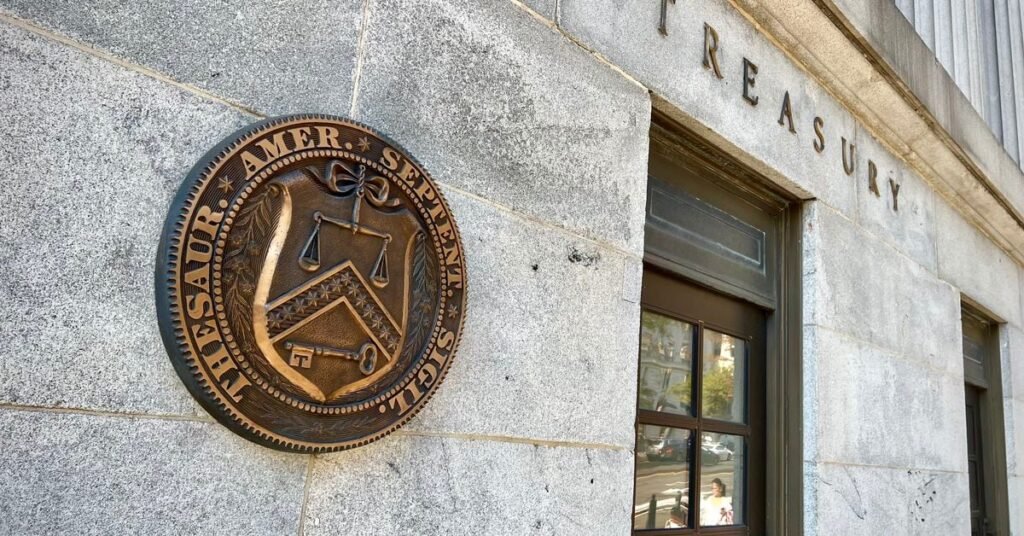
-
U.S.
Treasury
Undersecretary
for
Terrorism
and
Financial
Intelligence
Brian
Nelson
testified
on
Wednesday
that
terrorist
group
Hamas
has
received
very
little
support
in
digital
assets
–
countering
earlier
reports
that
it
got
tens
of
millions
in
crypto. -
Still,
he
said
his
office
is
focused
on
the
threat
from
digital
assets
and
asked
Congress
to
help
provide
more
tools.
Just
after
Hamas’
terrorist
attacks
in
Israel
last
year,
crypto
took
blame
for
helping
fund
such
brutal
killing.
While
the
prominent
media
reports
were
later
bashed
by
cryptocurrency
experts,
the
U.S.
Department
of
the
Treasury’s
top
official
on
terrorism
financing
confirmed
to
lawmakers
on
Wednesday
the
situation
was
blown
out
of
proportion.
While
the
Wall
Street
Journal
in
October
had
tied
tens
of
millions
of
dollars
in
crypto
payments
to
Hamas,
Palestinian
Islamic
Jihad
and
others,
citing
a
blog
post
by
analytics
firm
Elliptic
that
was
later
edited,
the
account
represented
a
misunderstanding
of
what
assets
actually
fell
into
the
hands
of
terrorists.
“We
don’t
expect
the
number
is
very
high,”
said
Brian
Nelson,
the
Treasury’s
undersecretary
for
terrorism
and
financial
intelligence,
in
testimony
before
the
House
Financial
Services
Committee.
The
Journal
had
largely
revised
the
initial
reporting
after
blockchain
analytical
firms
Elliptic
and
Chainalysis
offered
data
to
refute
it.
Even
after
that
reassessment,
lawmakers
such
as
Sens.
Sherrod
Brown
(D-Ohio)
and
Elizabeth
Warren
(D-Mass.)
continued
to
use
the
data
in
arguments
to
support
legislative
efforts
to
saddle
the
crypto
industry
with
strict
rules
in
the
name
of
national
security.
“To
be
clear,
Hamas
is
using
crypto
in
relatively
small
amounts
compared
to
what’s
been
widely
reported,”
Rep.
Tom
Emmer
(R-Minn.)
prompted
Nelson
at
the
Wednesday
hearing.
“That’s
our
assessment,”
Nelson
answered,
additionally
clarifying
that
those
groups
have
their
eyes
on
other
methods
of
support.
“We
also
assess
that
terrorists
still
prefer,
frankly,
to
use
traditional
products
and
services,”
he
said.
The
Treasury
has
targeted
a
number
of
businesses
and
regional
financial
firms
with
sanctions,
accusing
them
of
offering
such
aid.
Emmer
asked
the
Treasury
official
to
more
formally
correct
the
record
about
the
relationship
between
digital
assets
and
terrorism,
noting
“we
have
senators
who
are
legislating
on
these
false
figures.”
Despite
Nelson’s
answers
to
Emmer,
he’d
said
in
his
earlier,
prepared
remarks
that
the
government
is
“focused
on
disrupting
these
groups’
ability
to
leverage
digital
assets.”
“To
root
out
illicit
finance
by
players
in
virtual
asset
markets
and
forums,
we
need
additional
tools
and
resources,”
Nelson
argued,
saying
he’s
eager
to
work
with
Congress
on
that.